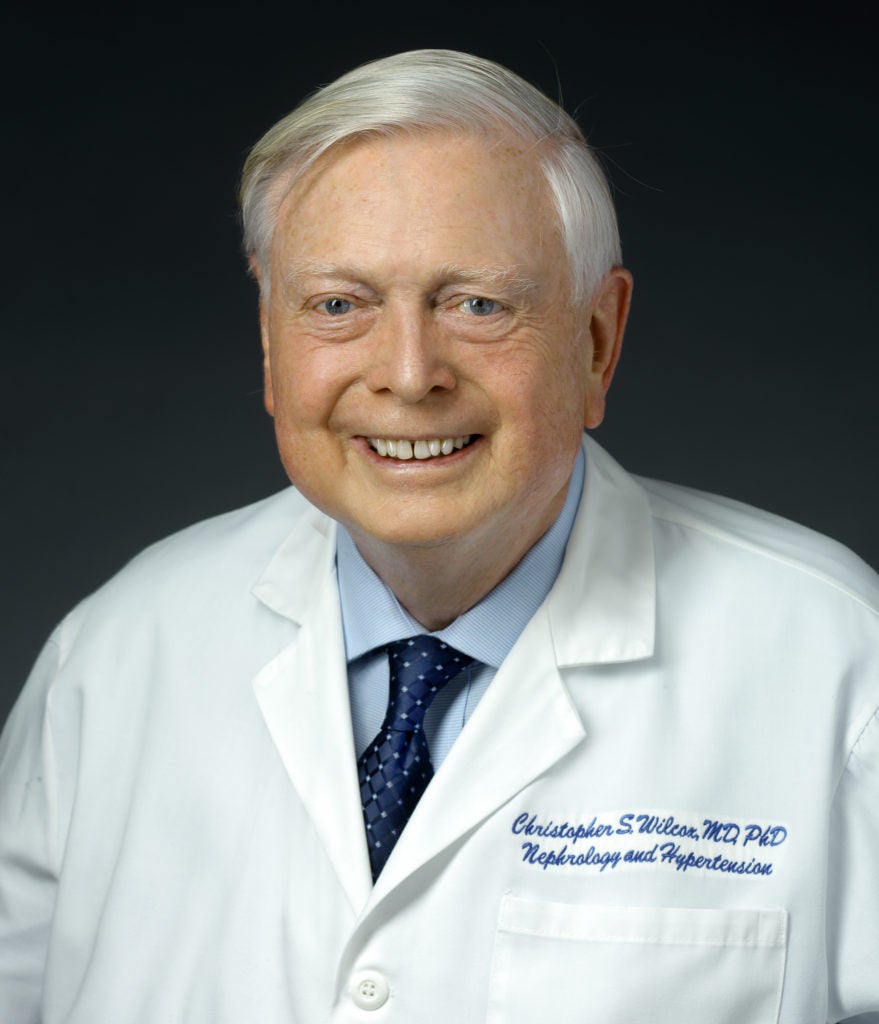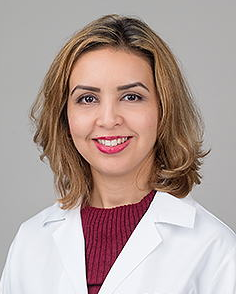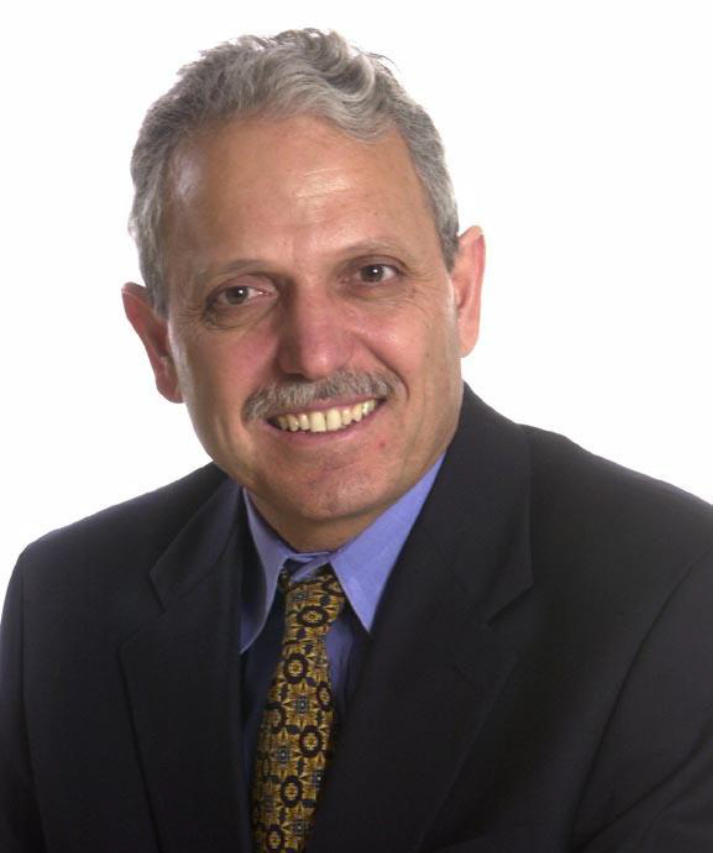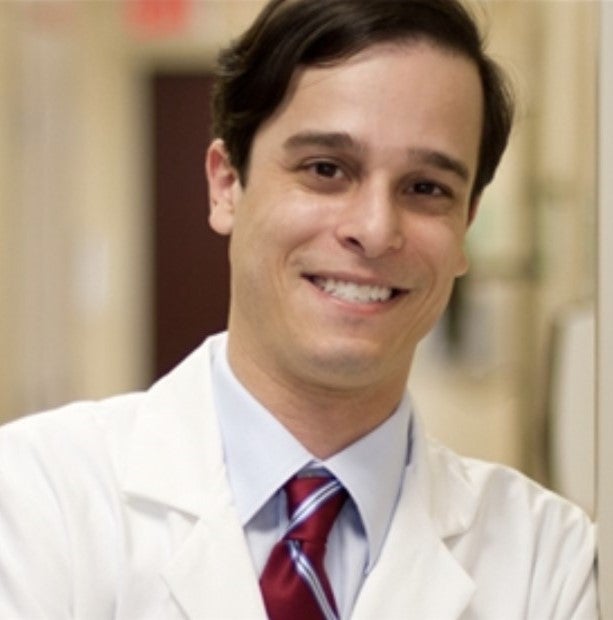Faculty: Division of Nephrology and Hypertension
Faculty of the Division of Nephrology and Hypertension conduct research and treat people with kidney diseases of various types, such as glomerular diseases, chronic kidney disease, kidney stones, diabetes, high blood pressure, and other kidney diseases.
To learn more about our faculty, follow the links below to access their Georgetown University faculty profiles. If a particular faculty member doesn’t have a link, their profile is currently under development and will be available shortly.
Also within the division, faculty of the Center for Hypertension, Kidney & Vascular Research investigate the mechanisms that underlie kidney and vascular (blood vessel) diseases, high blood pressure (hypertension), and train the next generation of leaders in these fields.
Clinical Faculty – GUH Research Faculty – VA Research Faculty

Michael James Choi, MD
Chief of Nephrology and Hypertension
Training
- Medical Degree: Johns Hopkins University School of Medicine, 1987
- Internship: Johns Hopkins Hospital, 1987
- Residency: Johns Hopkins Hospital, 1988-90
- Fellowship: University of Pennsylvania, 1990-94
- Certifications: Internal Medicine, 1990; Nephrology, 1992
Bio
Dr. Choi is the Chief and Program Director of the MedStar Georgetown Hospital Nephrology and Hypertension Division joining Georgetown in 2019. He is the immediate Past-President of the National Kidney Foundation (NKF), and won the Garabed Eknoyan Award for his outstanding contributions to the NKF.
He has been recognized as a clinician educator in nephrology by multiple organizations. He was appointed the first Chair of the NKF Education Committee and also was Chair of the NKF Spring Clinical Meeting in 2011. He is on the American Board of Internal Medicine Nephrology Test Writing Committee. He has served on the American Society of Nephrology (ASN) Post-Graduate Education Committee and spoken internationally for ASN Highlights in Clinical Nephrology. He was also the Co-editor of the Nephrology Self-Assessment Program (NephSAP) for Chronic Kidney Disease and Progression. Prior to joining Georgetown, he was the Nephrology Clinical Director and Fellowship Program Director at Johns Hopkins where he won multiple teaching awards voted on by medical students, housestaff, and the University.
He is on the editorial board of the American Journal of Kidney Diseases and BMC Nephrology. He had been Deputy Editor of Advances in Chronic Kidney Disease and was on the editorial board for the Clinical Journal of the American Society of Nephrology. He is Chair of the Mid-Atlantic Nephrology Young Investigators Forum. His clinical and research interests include glomerular diseases, chronic kidney disease, kidney stones and medical education.
Publications
- Agarwal V, Plantinga L, Abdel-Kader K, Pivert K, Provenzano A, Soman S, Choi MJ, Jaar BG. Burnout and Emotional Well-Being among Nephrology Fellows: A National Online Survey. J Am Soc Nephrol. 2020 Apr;31(4):675-685. PubMed PMID 32123052.
- Gordon-Cappitelli J, Choi MJ. Prophylactic Anticoagulation in Adult Patients with Nephrotic Syndrome. Clin J Am Soc Nephrol. 2020 Jan;15 (1):123-125. PubMed PMID: 31575616.
- Thavarajah S, Choi MJ. The Use of Erythropoiesis-Stimulating Agents in Patients with CKD and Cancer: A Clinical Approach. Am J Kidney Dis. 2019 Aug 5. pii: S0272-6386(19)30767-X. [Epub ahead of print] PubMed PMID:31395400.
- Greer RC, Liu Y, Cavanaugh K, Diamantidis CJ, Estrella MM, Sperati CJ, Soman S, Abdel-Kader K, Agrawal V, Plantinga LC, Schell JO, Simon JF, Vassalotti JA, Jaar BG, Choi MJ; National Kidney Foundation Education Committee. Primary Care Physicians’ Perceived Barriers to Nephrology Referral and Co-management of Patients with CKD: a Qualitative Study. J Gen Intern Med. 2019 Jul;34(7):1228-1235. Epub 2019 Apr 16. PubMed PMID: 30993634.
- Subramaniam RM, Suarez-Cuervo C, Wilson RF, Turban S, Zhang A, Sherrod C, Aboagye J, Eng J, Choi MJ, Hutfless S, Bass EB. Effectiveness of Prevention Strategies for Contrast –Induced Nephropathy: A Systematic Review and Meta-analysis. Ann Intern Med. 2016 March 15;164(6):406-16. doi: 10.7326/M15-1456. PubMed PMID 26830221.
- Chen TK, Choi MJ, Kao WH, Astor BC, Scialla JJ, Appel LA, Li L, Lipkowitz MS, Wolf M, Parekh RS, Winkler CA, Estrella ME, Crews DC. Examination of Potential Modifiers of the Association of APOL1 Alleles with CKD Progression. Clin J Am Soc Nephrol. 2015 Dec 7;10(12):2128-35. PubMed PMID 26430087.
- Parsa A, Kao WH, Xie D, Astor BC, Li M, Hsu CY, Feldman HI, Parekh RS, Kusek JW, Greene TH, Fink JC, Anderson AH, Choi MJ, Wright JT Jr, Lash JP, Freedman BI, Ojo A, Winkler CA, Raj DS, Kopp JB, He J, Jensvold NG, Tao K, Lipkowitz MS, Appel LJ; AASK Study Investigators; CRIC Study Investigators. APOL1 risk variants, race, and progression of chronic kidney disease. N Engl J Med. 2013 Dec 5;369(23):2183-96. PubMed PMID 24206458.
- Trachtman H, Choi MJ, Somers M, Mariani L, Beck L, Waldman M, Langford C, Bomback A, Holzman L. KDOQI US Commentary on the 2012 KDIGO clinical practice guideline for glomerulonephritis. Am J Kidney Dis. 2013;62:403-41. (corresponding author)
- Choi MJ, Ziyadeh FN. The Utility of the Transtubular Potassium Gradient in the Evaluation of Hyperkalemia. J Am Soc Nephrol. 2008 Mar;19(3):424-6. PubMed PMID: 18216310.
- Berliner AR, Haas MA, Choi MJ. Sarcoidosis: the nephrologist’s perspective. Am J Kidney Dis. 2006 Nov;48(5):856-70. PubMed PMID: 17060009.
- Choi MJ, Eustace JA, Gimenez LF, Atta MG, Scheel PJ, Sothinathan R, Briggs WA. Mycophenolate mofetil treatment for primary glomerular diseases. Kidney Int. 2002 Mar;61(3):1098-114. PubMed PMID 11849465.
- King LS, Choi M, Fernandez PC, Cartran JP, Agre P. Brief Report: Urinary concentrating defect in aquaporin-1 null individuals. N Engl J Med. 2001;345:175-179. PubMed PMID 11463012.
- Choi MJ, Fernandez PC, Patnaik A, Coupaye-Gerard B, D’Andrea D, Szerlip H, Kleyman TR. Brief Report: Trimethoprim induced hyperkalemia in a patient with AIDS. N Engl J Med. 1993 Mar 11;328(10):703-6. PubMed PMID 8433730.

Christopher Wilcox, MD
Professor of Nephrology
Training
- Medical Degree: Oxford University, UK, 1969
- Ph.D: London University, UK, 1974
- Internship: London University, UK, 1970
- Residency: London University, UK, 1971
- Fellowship: London University, UK, 1973
- Certifications: Internal Medicine, 1986; Nephrology, 1992; Certified Hypertension Specialist, 1999
Bio
Dr. Wilcox is the former Chief of the Georgetown Nephrology Division and the George E. Schreiner Professor of Nephrology. He previously held professional positions at University of Florida, Harvard Medical School, Yale Medical School, University of Cambridge, and London University. He holds an NIH individual investigator RO-1 grant and an NIH Small Business Investigator Research and Development Grant. He has been Chair of several NIH/NIDDK Study Sections, and was the Chair of the AHA Council of High Blood Pressure Research. He has received many national and international honors and distinguished lecturer positions. He is a mentor for many faculty and fellows of the Georgetown Nephrology and Hypertension Division. He has been elected a Fellow of the Royal Society of Medicine (UK), a Fellow of the Royal College of Physicians (UK), a Master of the American College of Physicians, a Fellow of the American Society of Nephrology and a Fellow of the American Heart Association Councils on Hypertension and the Kidney in Cardiovascular Disease.
His research is focused on the interaction between blood pressure and the kidney. His basic research entails studies of genes, cells, tissues and arterioles in animal models. Currently, he is investigating the hypothesis that oxidative stress is a proximate cause of most of the diseases of the second half of life. He studies this in animal models of hypertension, kidney disease, menopause and aging using isolated, perfused renal afferent, mesenteric and intracerebral arterioles from mice, and long term whole animal studies. Currently, he holds, the Walter’s Family Chair of Cardiovascular research. He is studying the role of oxidative stress in transforming cells into a state of senescence. His clinical/translated research is focused on better methods to manage the complications of chronic kidney disease and hypertension. He investigates small human arterioles dissected from a skin biopsy to study the genes and mechanism that initiate microvascular disease in humans. He has developed a non-invasive vascular function laboratory with state-of-the-art equipment to study small and large vessel function in human subjects. His present research includes enhancement of host-defense against COVID-19 by mineralocorticosteroid receptor antagonists and the underlying cause of microvascular dysfunction in COVID-19 survivors. He is developing a new extended release formulation of a diuretic that he has taken through Phase 1 clinical trials in normal subjects and has now gained an FDA licenses for US in patients with edema. He has published over 350 papers and two books.
Publications
- Harrison, DG., Coffman, T and Wilcox, C.S.: Pathophysiology of hypertension, Circ Res 128: 847-863, 2021
- Shen, W., Alshehri, M., Desale, S., Wilcox, C.S.: The effect of amiloride on proteinuria in patients with proteinuric kidney disease, Am J Nephrol. 52: 368-377, 2021.
- Wilcox, C.S.: Antihypertensive and Renal Mechanisms of SGLT2 (Sodium-Glucose Linked Transporter 2) Inhibitors. Hypertension, 2020 Apr 75(4):894-901 (PMID: 32114848).
- Lipkowitz M.S., Wilcox C.S.: Dietary salt intake for patients with hypertension or kidney disease. In Ikizler T.A. and Mitch W.E. (eds): “Handbook of Nutrition and the Kidney”, 7th Edition. Wolters Kluwer, Philadelphia PA, Chapter 17, 2018.
- Hoorn, E.J., Wilcox, C.S., Ellison, D.H., Diuretics. In Brenner, B.M., Rector, F.C. (eds): “Brenner & Rector’s The Kidney”, 11th edition. Elsevier, Philadelphia PA, in press, 2018.
- Wilcox, C.S., Pathogenesis of Hypertension. In Gilbert, S.J. and Weiner, D.E. (eds): “National Kidney Foundation Primer on Kidney Disease, 7th Edition. Elsevier, Philadelphia PA, Chapter 64, 2017.
- Shah, S., Pitt, B., Brater, D.C, Feig, P.U., Shen, W., Khwaja, F.S. Wilcox, C.S.: Sodium and fluid excretion with torsemide in healthy subjects is limited by the short duration of diuretic action. J Am Heart Assoc, Oct 5, 6 pii:e006135 doi: 10.1161/jJAHA 117.006135, 2017 (PMCID: PMC5721837),
Clinical Faculty

Keiko Greenberg, MD
Assistant Professor of Medicine
Fellowship Program Director
Training
- Medical Degree: University of Virginia School of Medicine, 2009
- Internship: Johns Hopkins Hospital, 2010
- Residency: Johns Hopkins Hospital, 2012
- Fellowship: Johns Hopkins Hospital, 2015
- Certifications: Internal Medicine 2012; Nephrology 2015
Training
- Medical Degree: Carol Davila University of Medicine and Pharmacy, Bucharest, Romania, 1997
- Internship: Yale University School of Medicine, Danbury Hospital, Danbury, CT, 2002
- Residency: Yale University School of Medicine, Danbury Hospital, Danbury, CT, 2004
- Fellowship: Columbia University College of Physicians and Surgeons, St Luke’s Roosevelt Hospital Center, New York, NY, 2006

Chanigan Nilubol, MD
Associate Professor of Medicine
Training
- Medical Degree: Chulalongkorn University Faculty of Medicine, Bangkok, Thailand 1999
- Internship: St Elizabeth Health Center, Northeastern Ohio Universities College of Medicine (NEOUCOM) 2002
- Residency: St Elizabeth Health Center, Northeastern Ohio Universities College of Medicine (NEOUCOM) 2004
- Fellowship: University of Wisconsin School of Medicine and Public Health, Madison, WI 2007
- Fellowship: Columbia University Medical Center, New York, NY 2009 (Transplant Nephrology)
Bio
Dr Nilubol is currently an Associate Professor of Medicine. She has been on our faculty since 2010. Prior to joining our faculty, she was on faculty at Columbia University Medical Center and SUNY Downstate Medical Center in New York. Since joining our faculty, she has had many active roles in fellowship education as well as medical student education. She has directed fellows’ Clinical Conference Series incorporating weekly board review questions. She also co-directs he Nephrology Transplant lecture series where fellows as well as the rest of transplant team members attend. She is a Nephrology Elective Course Director for 4th year medical students and has worked to enhance their experience and exposure in the field of kidney disease. She has given didactic lectures to Georgetown medical students. She was accepted into the Leadership Education and Development (LEAD) program which is part of the nationwide educational leadership development program administered through the collaboration of Association of American Medical College (AAMC), Georgetown University Medical Center and MedStar Health. She serves on the National Kidney Foundation (National Capital Area & Virginia) Medical Advisory Board and is a Chair of a research subcommittee. She is a member of the Georgetown-MedStar Institutional Review Board (IRB).
Her special interests are in renal replacement modality education, long-term care for kidney transplant recipients and home dialysis patients. With her broad expertise across different modalities, her active goal currently is towards founding Kidney Disease Patient Education Program.
Publications
- Immune Checkpoint Inhibitor-induced Fanconi Syndrome. Farid S, Latif H, Nilubol C, Kim C.Farid S, et al. Cureus. 2020 Apr 16;12(4):e7686. PMID: 32431966
- In-Hospital Mortality in Cirrhotic Patients with End-Stage Renal Disease Treated with Hemodialysis Versus Peritoneal Dialysis: A Nationwide Study. Nader MA, Aguilar R, Sharma P, Krishnamoorthy P, Serban D, Gordon-Cappitelli J, Shen W, Nilubol C, Li P, Lipkowitz M.Nader MA, et al. Perit Dial Int. 2017 Jul-Aug;37(4):464-471. doi: 10.3747/pdi.2016.00131. Epub 2017. PMID: 28348101
- Preemptive kidney transplantation in systemic lupus erythematosus. Naveed A, Nilubol C, Melancon JK, Girlanda R, Johnson L, Javaid B.Naveed A, et al. Among authors: Nilubol C. Transplant Proc. 2011 Dec;43(10):3713-4. doi: 10.1016/j.transproceed.2011.08.092.Transplant Proc. 2011. PMID: 22172832
- Smavatkul C [Nilubol C], Pascual J, Desai AG, Samaniego M, Becker BN, Djamali A. Disease progression and outcomes in type 1 diabetic kidney transplant recipients based on posttransplantation CKD staging. Am J Kidney Dis. 2007 Oct;50(4):631-40. PMID 17900463
- Djamali A, Sadowski EA, Muehrer RJ, Reese S, Smavatkul C [Nilubol C], Vidyasagar A, Fain SB, Lipscomb RC, Hullett DH, Samaniego-Picota M, Grist TM, Becker BN. BOLD-MRI assessment of intrarenal oxygenation and oxidative stress in patients with chronic kidney allograft dysfunction. Am J Physiol Renal Physiol. 2007 Feb;292(2): F513-22. Epub 2006 Oct 24. PMID: 17062846
- Longstreth KL, Robbins SD, Smavatkul C [Nilubol C], Doe NS. Cephalexin-induced acute tubular necrosis. Pharmacotherapy. 2004 Jun;24(6):808-11. PMID: 15222673

Robert Rubin, MD
Distinguished Professor of Medicine
Training
- Medical Degree: Cornell University Medical College, 1970
- Internship: New England Medical Center Hospital, Boston, Intern, 1971
- Residency: New England Medical Center Hospital, Boston, 1972
- Fellowship: New England Medical Center Hospital, Boston, 1974-1976
Bio
Dr. Rubin is currently Distinguished Professor of Medicine. He has been on our faculty since 1981. Prior to joining our faculty, he founded the Hypertension Clinic at the New England Medical Center and served as Chief of Nephrology at the Lemuel Shattuck Hospital in Boston. From 1981-1984 he was appointed by President Reagan as Assistant Secretary of Planning and Evaluation at the Department of Health and Human Services (DHHS) as well as an Assistant Surgeon General. He has been the President and CEO of an international health care consulting company (The Lewin Group) and medical director of a pharmacy benefits management company. Dr. Rubin was the founding editor of the Public Policy section of the Clinal Journal of the American Society of Nephrology.
In addition, he has served on several committees of the Nation Academy of Medicine (formerly the Institute of Medicine). Most recently on the Committee on Strategies to Reduce Sodium Intake. Dr. Rubin was a trustee of the American Kidney Fund for 17 years and currently serves on their Clinical Scientist in Nephrology grant selection committee. He was co-chair of the DHHS committee that designed the ESRD prospective payment system .He has served on numerous public and non-profit advisory boards including the Robert Wood Johnson Health Policy Fellowships (13 years), the Leonard Davis Institute, the John F. Kennedy School of Government, the Institute of Health Technology Studies (chair of research committee)
His special interests include Outcomes Research, Pharmacoeconomics, Health Care Policy and Hypertension. He chairs our bi-monthly journal club meetings and curates our weekly Article of the Week series for faculty and Fellows.
Publications
- Rubin RJ. A Tribute to George E. Schreiner. Clin J Am Soc Nephrol 7: 1353-1354, 2012.
- Rubin RJ. Effect of the 2012 Election on Health Policy Issues for the Nephrologist. Clin J Am Soc Nephrol 8: 336-338, 2013.
- Brunelli SM, Monda KL, Burkhart JM, Gitlin M, Neumann PJ, Park GS, Symonian-Silver M, Yue S, Bradbury BD, Rubin RJ. Early Trends From the Study to Evaluate the Prospective payment System Impact on Small Dialysis Organizations (STEPPS). Am J Kidney Dis 61(6):947-956, 2013.
- Rubin, RJ. Understanding Washington: A Nephrologist’s Perspective From Inside the Beltway. Am J Kidney Dis 62 (6):1042–1045, 2013.
- Monda KL, Joseph P, Neumann PJ, Bradbury BD, Rubin RJ. Comparative changes in treatment practices and clinical outcomes following implementation of a prospective payment system: the STEPPS study. BMC Nephrology, 16:67 (01 May) 2015.
- Wish JB, Charytan C, Chertow GM, Kalantar-Zadeh K, Kliger AS, Rubin RJ, Yee J, Fishbane S. Introduction of Biosimilar Therapeutics Into Nephrology Practice in the United States: Report of a Scientific Workshop Sponsored by the National Kidney Foundation. Am J Kidney Dis. 68(6):843-852, 2016
- Campbell, JD, Belozeroff, V, Wittington, MD, Rubin, RJ, Raggi, P, Briggs, AH Prices for common cardiovascular drugs in the US are not aligned with value. Health Affairs, 37 1298-1305 2018, DOI: 10.1377/hlthaff.2018.0221
- Fuller, DS, Xing, S, Belozeroff, V, Yehoshua, A, Morgenstern, H, Robinson, BM, Rubin, RJ, Bhatt, N, Pisoni, RL, Variability in Cinacalcet Prescription across US Hemodialysis Facilities, CJASN, 14 (2) 241-249 2019; DOI: https://doi.org/10.2215/CJN.09550818

Negiin Pourafshar, MD
Associate Professor of Medicine
Training
- Medical Degree: Shiraz University of Medical Sciences, 2007
- Residency: University of Florida, 2014
- Fellowship: University of Florida, 2016
- Certifications: Internal Medicine 2014; Nephrology 2018
Bio
Negiin Pourafshar, MD, FASN, is Board Certified in Internal Medicine and Nephrology. Prior to joining MedStar Georgetown University hospital, she was an Assistant Professor of Medicine at Division of Nephrology, Center for Immunity, Inflammation and Regenerative Medicine at University of Virginia since 2017. She established care for patients living with cardiovascular and kidney disease and specializes in treating the renal-related aspects of heart failure, disorders of fluid homeostasis, cardiorenal syndrome and renal pathology seen with cardiac disease. Moreover, she has been involved in clinical research related to the interactions between the kidney and heart in various pathologic situations, including post-transplant and after major surgery. Multiple peer-reviewed journals have published articles highlighting her research and she has presented at several national and international conferences, including the American Society of Nephrology. In addition to her roles as clinician and researcher, Dr. Pourafshar is an active teacher, and enjoys teaching medical students, residents and fellow physicians in the inpatient and outpatient settings. She has been actively involved in giving lectures to local medical and physician assistant students.
Outside of work, Dr. Pourafshar enjoys hiking, swimming, and spending time with family.
Publications
- Lysak N, Hashemighouchani H, Davoudi A, Pourafshar N, Loftus T, Rupert M, Efron P, Rashidi P, Bihorac A, Ozrazgat-Baslanti T. Cardiovascular Death and Progression to End-Stage Renal Disease after Major Surgery in Elderly Patients. BJS Open. Feb 2020; 4(1): 145-156.
- Pourafshar N, Karimi A, Wen X, Sobel E, Pourafshar S, Agrawal N, Segal E, Mohandas R, Segal MS. The utility of trough mycophenolic acid levels for the management of lupus nephritis. Nephrol Dial Transplant. Jan 1, 2019; 34 (1): 83-89. PMID: 29548021.
- Pourafshar N, Karimi A, Soleimani M. Thiazide Diuretics in Chronic Kidney Disease. Curr Drug Metab.2018;19(12):1012. PMID:29962339
- Pourafshar N, Pourafshar S, Soleimani M. Urine Ammonium Predicts Clinical Outcomes in Hypertensive Kidney Disease: points to consider. Nephron, Oct 19, 2017.PMID:29050011.
- Ather I, Pourafshar N, Schain D, Gupte A, Casey M. Babesiosis: An Unusual Cause of Sever Sepsis in a Kidney Transplant Recipient.Transpl Infect Dis. June 21, 2017. PMID:28636757.
- Karimi A, Pourafshar N, Dibu G, Beaver TM, Bavry AA. High-risk Trans-Catheter Aortic Valve Replacement in a Failed Freestyle Valve with Low Coronary Height: A Case Report. Cardiol Ther. March 28;2017. PMID: 28353137.
- Karimi A, Pourafshar N, Bavry AA. Late Paravalvular Aortic Regurgitation: Migration of the Valve or Late Recoil? Cardiol Ther Jan 2; 2017; PMID: 28044267.
- Pourafshar N, Karimi A, Gregg J, Kazory A. Need for Raising Awareness – Monitoring Urinary Protein Excretion in Cardiac Transplant Patients Receiving mTOR Inhibitors. Nephron Nov 8, 2016; PMID:27820926.
- Karimi A, Pourafshar N, Fudge J. Pulmonary and Tricuspid Valvuloplasty in Carcinoid Heart Disease. Catheter Cardiovasc Interv Dec 28; 2016; PMID: 28029208.
- Pourafshar N, Sobel E, Segal M. A Case of Isolated Renal Involvement of Polyarteritis Nodosa Successfully Treated with Steroid Monotherapy. BMJ Case Rep Jul 20; 2016; PMID: 27440849.
- Pourafshar N, Karimi A, Anderson RD, Kandzari D. Renal Denervation, Past, Present, and Future. Cardiovascular Innov and App J. 2016 May.
- Aalaei-Andabili S, Pourafshar N, Bavry AA, Klodell CT, Anderson RD, Karimi A, Petersen JW, Beaver TM. Acute Kidney Injury (AKI) Before and After Transcatheter Aortic Valve Replacement (TAVR) with Valve Academic Research Consortium (VARC) Criteria. J Card Surg. 2016 May; PMID: 27212701.
- Karimi A, Pourafshar N, Fudge JC, Saidi A, Bavry AA, Anderson RD, Park Ki, Bleiweis M, Moguillansky D. An Adolescent with Possible Takayasu’s Arteritis, Giant Coronary Artery Aneurysms and Recurrent Acute Coronary Syndrome. J Am Coll Cardiol. 2016 Apr; 67(13_S):1149-1149.
- Pourafshar N, Karimi A, Kazory A. Extracorporeal Ultrafiltration Therapy for Acute Decompensated Heart Failure. Expert Rev Cardiovasc Ther. 2016 Jan; 14(1):5-13.
- Pourafshar N, Karimi A, Kazory A. Review of Extracorporeal Ultrafiltration Clinical Trials for Acute Decompensated Heart Failure. Abstract Supplement of J Am Soc Nephrol. 2015 Oct.
- Ejaz AA, Pourafshar N, Mohandas R, Smallwood BA, Johnson RJ, Hsu JW. Uric acid and the prediction models of tumor lysis syndrome in AML. PLoS One; 2015 Mar 16; 10(3).
- Kambhampati G, Ejaz NI, Asmar A, Aiyer R, Arif AA, Pourafshar N, Yalamanchili YR, Ejaz AA. Fluid Balance and Conventional and Novel Biomarkers of Acute Kidney Injury in Cardiovascular Surgery. J Cardiovasc Surg (Torino). 2013 Oct; 54(5):639-46.
- Kojuri J, Karimi A, Pourafshar N, Vosoughi AR. Association between Serum Levels of Hs-CRP and LDL-C with Degree of Coronary Artery Stenosis in Patients with Stable Angina Pectoris. Iran Red Crescent Me. 2010; 12(4):396-405

Abraham W. Aron, MD
Training
- Medical Degree: University of Connecticut School of Medicine, 2015
- Internship: Beth Israel Deaconess Medical Center/Harvard Medical School, 2016
- Residency: Beth Israel Deaconess Medical Center/Harvard Medical School, 2018
- Fellowship: Yale University School of Medicine, 2021
Bio
Dr. Aron is an Assistant Professor of Medicine. He has been on our faculty since 2023. Prior to joining our division, he was a faculty member in the Division of Nephrology at Stanford University School of Medicine where he was awarded the division teaching award and the Section of Nephrology at Yale University School of Medicine. Before pursuing his nephrology training, Dr. Aron also was on faculty at Harvard Medical School while working as an oncology hospitalist at Beth Israel Deaconess Medical Center.
During his time at Stanford and Yale University, he grew a specialty clinic in glomerular disease and was heavily involved in teaching nephrology fellows including spearheading efforts to develop a nephrology point of care ultrasound curriculum. He has authored a review on practical genetic testing in kidney disease and has been invited to lecture at other institutions on topics such as salt and water handling in microgravity and practical genetic testing for the nephrologist.
His clinical interests include glomerular disease, genetic kidney disease and medical education.
Publications
- Aron AW, Dahl NK, Besse W. A Practical Guide to Genetic Testing for Kidney Disorders of Unknown Etiology. Kidney360. 2022 Jul 8;3(9):1640-1651
- Aron AW, Amatruda JG. Fractional Excretion of Sodium and Urea are Useful Tools in the Evaluation of AKI: CON. Kidney360. 2023 Jun 1;4(6):e728-e730.
- Waldman M, Sinaii N, Lerma EV, Kurien AA, Jhaveri KD, Uppal NN, Wanchoo R, Avasare R, Zuckerman JE, Liew A, Gallan AJ, El-Meanawy A, Yagil Y, Lebedev L, Baskaran K, Vilayur E, Cohen A, Weerasinghe N, Petrakis I, Stylianou K, Gakiopoulou H, Hamilton AJ, Edney N, Millner R, Marinaki S, Rein JL, Killen JP, Rodríguez Chagolla JM, Bassil C, Lopez Del Valle R, Evans J, Urisman A, Zawaideh M, Baxi PV, Rodby R, Vankalakunti M, Mejia Vilet JM, Ramirez Andrade SE, Homan MP, Vásquez Jiménez E, Perinpanayagam N, Velez JCQ, Mohamed MMB, Mohammed KMG, Sekar A, Ollila L, Aron AW, Arellano Arteaga KJ, Islam M, Berrio EM, Maoujoud O, Morales RR, Seipp R, Schulze CE, Yenchek RH, Vancea I, Muneeb M, Howard L, Caza TN. COVID-19 Vaccination and New Onset Glomerular Disease: Results from the IRocGN2 International Registry. Kidney360. 2023 Mar 1;4(3):349-362.

Mahesh Krishnan, MD, MPH, MBA, FASN
Assistant Professor of Medicine
Group Vice President, Research and Development
Training
- Medical Degree: Jefferson Medical College, 1994
- Internship: Georgetown University Medical Center, 1995
- Residency: Georgetown University Medical Center, 1997
- Fellowship: Johns Hopkins Hospital, 2000
Bio
Mahesh is the clinical lead for DaVita Venture Group and focuses on establishing strategic partnerships with industry leaders, while remaining active in DaVita’s R&D efforts. Prior to DaVita Venture Group, he served as DaVita’s first international Chief Medical Officer.
Before DaVita, Mahesh served as medical director for Epogen® at Amgen, and practiced nephrology in northern Virginia for nearly five years. He earned his MD from Jefferson Medical College at Thomas Jefferson University. He also holds an MPH from Johns Hopkins University and an MBA from the Johns Hopkins Carey School of Business.
Publications
- Krishnan, M. The Importance of Considering Total Patient Economics for Hemodialysis Kidney International Reports , Volume 4 , Issue 3 , 365 – 366.
- Drozdz M, Weigert A, Silva F, Frazão J, Alsuwaida A, Krishnan M, Kleophas W, Brzosko S, Johansson FK, Jacobson SH. Achievement of renal anemia KDIGO targets by two different clinical strategies – a European hemodialysis multicenter analysis. BMC Nephrol. 2019 Jan 7;20(1):5.
- Tong A, Manns B, Wang AYM, Hemmelgarn B, Wheeler DC, Gill J, Tugwell P, Pecoits-Filho R, Crowe S, Harris T, Van Biesen W, Winkelmayer WC, Levin A, Thompson A, Perkovic V, Ju A, Gutman T, Bernier-Jean A, Viecelli AK, O’Lone E, Shen J, Josephson MA, Cho Y, Johnson DW, Sautenet B, Tonelli M, Craig JC; SONG Implementation Workshop Investigators. Implementing core outcomes in kidney disease: report of the Standardized Outcomes in Nephrology (SONG) implementation workshop. Kidney Int. 2018 Dec;94(6):1053-1068.
- Tong A, Manns B, Hemmelgarn B, Wheeler DC, Evangelidis N, Tugwell P, Crowe S, Van Biesen W, Winkelmayer WC, O’Donoghue D, Tam-Tham H, Shen JI, Pinter J, Larkins N, Youssouf S, Mandayam S, Ju A, Craig JC; SONG-HD Investigators. Establishing Core Outcome Domains in Hemodialysis: Report of the Standardized Outcomes in Nephrology-Hemodialysis (SONG-HD) Consensus Workshop. Am J Kidney Dis. 2017 Jan;69(1):97-107.
- Canaud B, Hegbrant J, Nissenson AR, Barth C, Maddux F, Etter M, Krishnan M. Improving outcomes of dialysis patients by population health management-the Global Chief Medical Officer Initiative. ,Lancet. 2016 Oct 22;388(10055):1966-1967.
- Liu J, Krishnan M, Zhou J, Nieman KM, Peng Y, Gilbertson DT. Data completeness as an unmeasured confounder in dialysis facility performance comparison with 1-year follow-up. Clin Nephrol. 2016 Nov;86 (2016)(11):262-269.
- Dember LM, Archdeacon P, Krishnan M, Lacson E Jr, Ling SM, Roy-Chaudhury P, Smith KA, Flessner MF.
- Pragmatic Trials in Maintenance Dialysis: Perspectives from the Kidney Health Initiative. J Am Soc Nephrol. 2016 Oct;27(10):2955-2963.
- Molnar MZ, Nguyen DV, Chen Y, Ravel V, Streja E, Krishnan M, Kovesdy CP, Mehrotra R, Kalantar-Zadeh K. Predictive Score for Posttransplantation Outcomes. Transplantation. 2017 Jun;101(6):1353-1364.
- Brunelli SM, Sibbel S, Colson C, Hunt A, Nissenson AR, Krishnan M. Medicare Advantage associated with lower mortality for incident dialysis patients. Nephrol News Issues. 2015 Dec;29(13):16-7, 21, 26-9.
- Feder J, Nadel MV, Krishnan M. A Matter of Choice: Opportunities and Obstacles Facing People with ESRD. Clin J Am Soc Nephrol. 2015 Nov 9.
- Almachraki F, Tuffli M, Lee P, Desmarais M, Shih HC, Nissenson AR, Krishnan M. Socioeconomic Status of Counties Where Dialysis Clinics Are Located Is an Important Factor in Comparing Dialysis Providers. Popul Health Manag. 2015 Jun 19.
- Krishnan M, Weinhandl ED, Jackson S, Gilbertson DT, Lacson E Jr. Comorbidity Ascertainment From the ESRD Medical Evidence Report and Medicare Claims Around Dialysis Initiation: A Comparison Using US Renal Data System Data. Am J Kidney Dis. 2015 Nov;66(5):802-12.
- Krishnan M, Franco E, McMurray S, Petra E, Nissenson AR. ESRD special needs plans: a proof of concept for integrated care. Nephrol News Issues. 2014 Nov;28(12):30, 32, 34-6.
- Weinhandl E, Constantini E, Everson S, Gilbertson D, Li S, Solid C, Anger M, Bhat JG, DeOreo P, Krishnan M, Nissenson A, Johnson D, Ikizler TA, Maddux F, Sadler J, Tyshler L, Parker T 3rd, Schiller B, Smith B, Lindenfeld S, Collins AJ. Peer kidney care initiative 2014 report: dialysis care and outcomes in the United States. Am J Kidney Dis. 2015 Jun;65(6 Suppl 1):Svi, S1-140.
- Brunelli SM, Wilson S, Krishnan M, Nissenson AR. Confounders of mortality and hospitalization rate calculations for profit and nonprofit dialysis facilities: analytic augmentation. BMC Nephrol. 2014 Jul 21;15:121.
- Brunelli SM, Nissenson AR, Krishnan M. Elderly patients starting outpatient dialysis not at excessive mortality risk. Hemodial Int. 2014 Jul;18(3):583-4.
- Krishnan M, Nissenson AR. New alternatives in anemia treatment: biosimilars and HIF stabilizers. Nephrol News Issues. 2014 May;28(6):24-8.
- Bond TC, Wilson S, Moran J, Krishnan M. Mortality Rates Do Not Differ Among Patients Prescribed Various Vitamin D Agents. Perit Dial Int. 2014 Mar 1.
- Krishnan M, Brunelli SM, Maddux FW, Parker TF 3rd, Johnson D, Nissenson AR, Collins A, Lacson E Jr.Guiding principles and checklist for population-based quality metrics. Clin J Am Soc Nephrol. 2014 Jun 6;9(6):1124-31. doi: 10.2215/CJN.11061013. Epub 2014 Feb 20.
- Molnar MZ, Foster CE 3rd, Sim JJ, Remport A, Krishnan M, Kovesdy CP, Kalantar-Zadeh K.Association of pre-transplant blood pressure with post-transplant outcomes. Clin Transplant. 2014 Feb;28(2):166-76.
- Parker TF 3rd, Hakim R, Nissenson AR, Krishnan M, Bond TC, Chan K, Maddux FW, Glassock R. A quality initiative. Reducing rates of hospitalizations by objectively monitoring volume removal. Nephrol News Issues. 2013 Mar;27(3):30-2, 34-6.
- Hatamizadeh P, Molnar MZ, Streja E, Lertdumrongluk P, Krishnan M, Kovesdy CP, Kalantar-Zadeh K.
- Recipient-related predictors of kidney transplantation outcomes in the elderly. Clin Transplant. 2013 May-Jun;27(3):436-43. doi: 10.1111/ctr.12106. Epub 2013 Mar 21.
- Parker TF 3rd, Hakim R, Nissenson AR, Krishnan M, Bond TC, Chan K, Maddux FW, Glassock R. A quality initiative. Reducing rates of hospitalizations by objectively monitoring volume removal. Nephrol News Issues. 2013 Mar;27(3):30-2, 34-6.
- In data we trust: the role and utility of dialysis provider databases in the policy process. Krishnan M, Wilfehrt HM, Lacson E Jr. Clin J Am Soc Nephrol. 2012 Nov;7(11):1891-6. doi: 10.2215/CJN.03220312. Epub 2012 Sep 13.
- Donor race and outcomes in kidney transplant recipients. Molnar MZ, Kovesdy CP, Bunnapradist S, Streja E, Krishnan M, Mucsi I, Norris KC, Kalantar-Zadeh K. Clin Transplant. 2012 Jul 25. doi: 10.1111/j.1399-0012.2012.01686.x.
- CathAway fistula vascular access program achieves improved outcomes and sets a new standard of treatment for end-stage renal disease. Wilson SM, Mayne TJ, Krishnan M, Holland J, Volz A, Good LS, Nissenson AR. Hemodial Int. 2012 Jun 29. doi: 10.1111/j.1542-4758.2012.00721.x.
- The IMPACT (Incident Management of Patients, Actions Centered on Treatment) program: a quality improvement approach for caring for patients initiating long-term hemodialysis. Wilson SM, Robertson JA, Chen G, Goel P, Benner DA, Krishnan M, Mayne TJ, Nissenson AR. Am J Kidney Dis. 2012 Sep;60(3):435-43. doi: 10.1053/j.ajkd.2012.04.009. Epub 2012 May 17.
- Relationship of body size and initial dialysis modality on subsequent transplantation, mortality and weight gain of ESRD patients.Lievense H, Kalantar-Zadeh K, Lukowsky LR, Molnar MZ, Duong U, Nissenson A, Krishnan M, Krediet R, Mehrotra R.Nephrol Dial Transplant. 2012 Sep;27(9):3631-8. doi: 10.1093/ndt/gfs131. Epub 2012 May 2.
- Molnar MZ, Bunnapradist S, Huang E, Krishnan M, Nissenson AR, Kovesdy CP, Kalantar-Zadeh K. Nephrol Dial Associations of pre-transplant anemia management with post-transplant delayed graft function in kidney transplant recipients.Molnar MZ, Kovesdy CP, Rosivall L, Bunnapradist S, Hoshino J, Streja E, Krishnan M, Kalantar-Zadeh K. Clin Transplant. 2012 Sep;26(5):782-91. doi: 10.1111/j.1399-0012.2012.01598.x. Epub 2012 Mar 12.
- Mortality prediction by surrogates of body composition: an examination of the obesity paradox in hemodialysis patients using composite ranking score analysis. Kalantar-Zadeh K, Streja E, Molnar MZ, Lukowsky LR, Krishnan M, Kovesdy CP, Greenland S. Am J Epidemiol. 2012 Apr 15;175(8):793-803. Epub 2012 Mar 16.
- Age and the associations of living donor and expanded criteria donor kidneys with kidney transplant outcomes.Molnar MZ, Streja E, Kovesdy CP, Shah A, Huang E, Bunnapradist S, Krishnan M, Kopple JD, Kalantar-Zadeh K. Am J Kidney Dis. 2012 Jun;59(6):841-8. Epub 2012 Feb 4.
- Effects of citrate acid concentrate (citrasate®) on heparin N requirements and hemodialysis adequacy: a multicenter, prospective noninferiority trial. Sands JJ, Kotanko P, Segal JH, Ho CH, Usvat L, Young A, Carter M, Sergeyeva O, Korth L, Maunsell E, Zhu Y, Krishnan M, Diaz-Buxo JA. Blood Purif. 2012;33(1-3):199-204. Epub 2012 Jan 20.
- Dialysis modality and outcomes in kidney transplant recipients. Molnar MZ, Mehrotra R, Duong U, Bunnapradist S, Lukowsky LR, Krishnan M, Kovesdy CP, Kalantar-Zadeh K. Clin J Am Soc Nephrol. 2012 Feb;7(2):332-41. Epub 2011 Dec 8.
- Results of a pilot program to improve phosphorus outcomes in hemodialysis patients.Mayne TJ, Benner D, Ricketts K, Burgess M, Wilson S, Poole L, Smyth M, Colson C, Krishnan M. J Ren Nutr. 2012 Sep;22(5):472-9. doi: 10.1053/j.jrn.2011.08.006. Epub 2011 Nov 3.
- Association of pretransplant glycemic control with posttransplant outcomes in diabetic kidney transplant recipients. Molnar MZ, Huang E, Hoshino J, Krishnan M, Nissenson AR, Kovesdy CP, Kalantar-Zadeh K. Diabetes Care. 2011 Dec;34(12):2536-41. Epub 2011 Oct 12.
- Association of pretransplant serum phosphorus with posttransplant outcomes. Sampaio MS, Molnar MZ, Kovesdy CP, Mehrotra R, Mucsi I, Sim JJ, Krishnan M, Nissenson AR, Kalantar-Zadeh K. Clin J Am Soc Nephrol. 2011 Nov;6(11):2712-21. doi: 10.2215/CJN.06190611. Epub 2011 Sep 29.
- High platelet count as a link between renal cachexia and cardiovascular mortality in end-stage renal disease patients. Molnar MZ, Streja E, Kovesdy CP, Budoff MJ, Nissenson AR, Krishnan M, Anker SD, Norris KC, Fonarow GC, Kalantar-Zadeh K. Am J Clin Nutr. 2011 Sep;94(3):945-54. Epub 2011 Aug 3.
- The ESRD Demonstration Project: what it accomplished. DaVita Inc. Nissenson AR, Deeb T, Franco E, Krishnan M, McMurray S, Mayne TJ. Nephrol News Issues. 2011 Jun;25(7):39-41.
- Association of dialysis facility-level hemoglobin measurement and erythropoiesis-stimulating agent dose adjustment frequencies with dialysis facility-level hemoglobin variation: a retrospective analysis. Khan I, Krishnan M, Kothawala A, Ashfaq A. BMC Nephrol. 2011 May 20;12:22.
- Dialyzer reuse with peracetic acid does not impact patient mortality.Bond TC, Nissenson AR, Krishnan M, Wilson SM, Mayne T.Clin J Am Soc Nephrol. 2011 Jun;6(6):1368-74. Epub 2011 May 12.
- Higher recipient body mass index is associated with post-transplant delayed kidney graft function. Molnar MZ, Kovesdy CP, Mucsi I, Bunnapradist S, Streja E, Krishnan M, Kalantar-Zadeh K. Kidney Int. 2011 Jul;80(2):218-24. doi: 10.1038/ki.2011.114. Epub 2011 Apr 27.
- Sampaio MS, Molnar MZ, Kovesdy CP, et al. Association of Pre-Transplant Serum Phosphorus with Post-Transplant Outcomes. Clinical Journal of the American Society of Nephrology. 2011;accepted August 2011.
- Nissenson AR, Deeb T, Franco E, Krishnan M, McMurray S, Mayne TJ. Results from the CMS Demonstration Project. Nephology News & Issues. 2011;25(6):38-41.
- Nissenson AR, Deeb T, Franco E, Krishnan M, McMurray S, Mayne TJ. The ESRD Demonstration Project: What it Accomplished. DaVita Inc. Nephrol News Issues. Jun 2011;25(7):39-41.
- Ng LJ, Chen F, Pisoni RL, et al. Hospitalization Risks Related to Vascular Access Type Among Incident US Hemodialysis Patients. Nephrol Dial Transplant. Mar 3, 2011.
- Molnar MZ, Kovesdy CP, Bunnapradist S, et al. Associations of Pretransplant Serum Albumin with Post-transplant Outcomes in Kidney Transplant Recipients. Am J Transplant. May 2011;11(5):1006-1015.
- Molnar MZ, Mehrotra R, Duong U, et al. Dialysis Modality and Outcomes in Kidney Transplant Recipients. Clinical Journal of the American Society of Nephrology. 2011;published online Dec 8, 2011.
- Molnar MZ, Kovesdy CP, Bunnapradist S, et al. Associations of Pre-Transplant Serum Albumin with Post-Transplant Mortality and Graft Failure in Kidney Transplant Recipients. American Journal of Transplantation. 2011.
- Mayne TJ, Benner D, Ricketts K, et al. Results of a Pilot Program to Improve Phosphorus Outcomes in Hemodialysis Patients. J Ren Nutr. Nov 2 2011.
- Bond TC, Nissenson AR, Krishnan M, Wilson SM, Mayne T. Dialyzer Reuse with Peracetic Acid does not Impact Patient Mortality. Clin J Am Soc Nephrol. Jun 2011;6(6):1368-1374.
- Krishnan M, McCarley P. Comparative effectiveness of active oral vitamin D agents in patients on peritoneal dialysis. Nephrol News Issues. 2011 Jan;25(1):27-30.
- Krishnan M, Mayne T, Nissenson AR. The bundle is coming! The bundle is coming! Perit Dial Int. 2011 Jan;31(1):17-8.
- Kalantar-Zadeh K, Streja E, Kovesdy CP, Oreopoulos A, Noori N, Jing J, Nissenson AR, Krishnan M, Kopple JD, Mehrotra R, Anker SD. The obesity paradox and mortality associated with surrogates of body size and muscle mass in patients receiving hemodialysis. Mayo Clin Proc. 2010 Nov;85(11):991-1001.
- Hurst FP, Abbott KC, Raj D, Krishnan M, Palant CE, Agodoa LY, Jindal RM. Arteriovenous fistulas among incident hemodialysis patients in Department of Defense and Veterans Affairs facilities. J Am Soc Nephrol. 2010 Sep;21(9):1571-7. Epub 2010 Aug 12.
- Nissenson AR, Mayne TJ, Krishnan M. The 2009 proposed rule for prospective ESRD payment: perspectives from a large dialysis organization. Am J Kidney Dis. 2010 Feb;55(2):223-6.
- Spiegel DM, Khan I, Krishnan M, Mayne TJ. Changes in hemoglobin level distribution in US dialysis patients from June 2006 to November 2008.Am J Kidney Dis. 2010 Jan;55(1):113-20. Epub 2009 Nov 22.
- Chawla LS, Krishnan M. Causes and consequences of inflammation on anemia management in hemodialysis patients. Hemodial Int. 2009 Apr;13(2):222-34. Review.
- Bradbury BD, Chen F, Furniss A, Pisoni RL, Keen M, Mapes D, Krishnan M. Conversion of vascular access type among incident hemodialysis patients: description and association with mortality. Am J Kidney Dis. 2009 May;53(5):804-14. Epub 2009 Mar 5.
- Pisoni RL, Arrington CJ, Albert JM, Ethier J, Kimata N, Krishnan M, Rayner HC, Saito A, Sands JJ, Saran R, Gillespie B, Wolfe RA, Port FK. Facility hemodialysis vascular access use and mortality in countries participating in DOPPS: an instrumental variable analysis. Am J Kidney Dis. 2009 Mar;53(3):475-91. Epub 2009 Jan 15.
- Bradbury BD, Critchlow CW, Weir MR, Stewart R, Krishnan M, Hakim RH.Impact of elevated C-reactive protein levels on erythropoiesis- stimulating agent (ESA) dose and responsiveness in hemodialysis patients. Nephrol Dial Transplant. 2009 Mar;24(3):919-25. Epub 2008 Oct 7
- Critchlow CW, Bradbury BD, Acquavella JF, Ruixo JJ, Krishnan M, Chow AT, Brenner RM. The effect of epoetin dose on hematocrit. Kidney Int. 2008 Sep;74(6):827; author reply 827-8.
- David C. Mendelssohn, Ronald L. Pisoni, Charlotte J. Arrington, Karen E. Yeates, Martine Leblanc, Clement Deziel, Takashi Akiba, Mahesh Krishnan, Shunichi Fukuhara, Norbert Lameire, Friedrich K. Port and Robert A. Wolfe. A practice-related risk score (PRS): a DOPPS-derived aggregate quality index for haemodialysis facilities. Nephrology Dialysis Transplantation, 2008 Apr 18.
- Kilpatrick RD, Critchlow CW, Fishbane S, Besarab A, Stehman-Breen C, Krishnan M, Bradbury BD. Greater Epoetin alfa Responsiveness Is Associated With Improved Survival in Hemodialysis Patients. Clin J Am Soc Nephrol. 2008 Apr 16
- Wingard RL, Pupim LB, Krishnan M, Shintani A, Ikizler TA, Hakim RM.Early intervention improves mortality and hospitalization rates in incident hemodialysis patients: RightStart program. Clin J Am Soc Nephrol. 2007 Nov;2(6):1170-5
- Collins AJ, Brenner RM, Ofman JJ, Chi EM, Stuccio-White N, Krishnan M, Solid C, Ofsthun NJ, Lazarus JM. Epoetin alfa use in patients with ESRD: an analysis of recent US prescribing patterns and hemoglobin outcomes. Am J Kidney Dis. 2005 Sep;46(3):481-8.
- Eustace JA, Gregory PC, Krishnan M, Ni W, Kuhn DM, Astor BC, Scheel PJ Jr. Influence of intravenous drug abuse on vascular access placement and survival in HIV-seropositive patients. Nephron Clin Pract. 2005;100(2):c38-45. Epub 2005 Apr 7.
- Krishnan M, Adams E. Managing the anemia of end-stage renal disease after hospitalization.
Nephrol Nurs J. 2004 Sep-Oct;31(5):541-4. - Krishnan M, Adams E. Operationalizing anemia management: organizing the program and coordinating the team. Nephrol Nurs J. 2003 Oct;30(5):567-70.
- Krishnan M. Preoperative care of patients with kidney disease. Am Fam Physician. 2002 Oct 15;66(8):1471-6, 1379.
- Krishnan M and Choi M. A case of uremia-associated pleural effusion in a peritoneal dialysis patient. Semin Dial. 2001 May-Jun;14(3):223-7.
- Nair SP, Krishnan M, Scheel P, Thuluvath PJ. Renal allograft survival in patients who had simultaneous liver and kidney transplantation compared with those who had renal transplantation alone. Transplant Proc. 2001 Feb-Mar;33(1-2):1139-40.
- Krishnan M, Nair R, Haas M, Atta MG. Acute renal failure in an HIV-positive 50-year-old man. Am J Kidney Dis. 2000 Nov;36(5):1075-8.
- Krishnan M. Using e-mail in renal patient care: panacea for information overload? Nephrol News Issues. 2000 Apr;14(5):41, 45-6.
- “How Useful are Inpatient Reference Labs?” Abstract. M. Krishnan in The Journal of General Internal Medicine. Vol. 12. Supplement 1. April 1997. P. 61.
- “Do Academic Medical Centers Have an Adequate Mix of Patients to Meet Educational Objectives?” Abstract. M. Krishnan in The Journal of General Internal Medicine. Vol. 12, Supplement 1. April 1997. P. 93.
- Before DaVita, Mahesh served as medical director for Epogen® at Amgen, and practiced nephrology in northern Virginia for nearly five years. He earned his MD from Jefferson Medical College at Thomas Jefferson University. He also holds an MPH from Johns Hopkins University and an MBA from the Johns Hopkins Carey School of Business.
Transplant Nephrology Faculty

Alexander Gilbert, MD
Associate Professor of Clinical Medicine
Training
- Medical Degree: New York University School of Medicine, 1998
- Internship: Beth Israel Deaconess Medical Center, Boston, 1999
- Residency: Beth Israel Deaconess Medical Center, Boston, 2001
- Nephrology Fellowship: Beth Israel Deaconess Medical Center, Boston, 2003
- Transplant Fellowship: Beth Israel Deaconess Medical Center, Boston, 2004
Bio
Dr. Gilbert is a transplant nephrologist working in the Medstar Georgetown Transplant Institute and serves as the director of the Transplant Nephrology Fellowship Program. He also developed and now supervises the Transplant Lecture Series for the general nephrology fellows. He has been awarded teacher of the year three times by the division of nephrology and once by the department of medicine. He has been on faculty at Georgetown since 2013 and before that was an attending physician and transplant nephrologist at NYU Langone Medical Center. His clinical work encompasses all phases of transplantation including pre-transplant evaluation, peri-operative management, and post-operative care of transplant patients as well as evaluation of living kidney donors.
He has a special interest and primary role in the use of HIV positive donors as well as cross-blood group transplants from A donors into B or O recipients and is the local P.I. for the HOPE in Action study to more widely use organs from HIV positive donors. He also has an interest in emerging technologies for management of transplant patients including the use of molecular diagnostics to diagnose rejection and using cell-free DNA testing to detect early allograft injury. He regularly mentors fellows and students on research projects in these areas.
In addition to his roles on the transplant candidate selection committee and the living donor selection committee, he served a term as member of the UNOS Kidney Committee developing policy for national kidney allocation. He is a frequent lecturer and has given invited talks at the American Transplant Congress meetings as well as on behalf of the UNOS Minority Affairs Committee and at UNOS regional meetings.
Publications
- Gilbert A. Kidney Transplantation across minor ABO incompatibility: the use of A2 to B transplants. Current Opin Organ Transplant 2019 Aug. 24(4): 365-369. PMID 31219841.
- Gilbert A, Grafals M, Timofeeva O, Zaheer M, Karabala A, Rosen-Bronson S, Li D, Awwad M, Abrams P, Moore J, Javaid B, Verbesey J, Ghasemian S, Cooper M. Pre-empting Antibody Mediated Rejection: A Program of DSA Monitoring and Treatment Can Effectively Prevent Antibody Mediated Rejection. Clin Transplant 2016 p.93.
- Yang M, Miller PJ, Case BC, Gilbert AJ, Widell JK, Rogers T, Satler LF, Waksman R, Ben-Dor I. Pre-operative cardiovascular testing and post-renal transplant clinical outcomes. Cardiovasc Revasc Med. 2019 Apr 17. PMID 31097384
- Konkel B, Lavin C, Wu TT, Anderson E, Iwamoto A, Rashid H, Gaitian B, Boone J, Cooper M, Abrams P, Gilbert A, Tang Q, Levi M, Fujimoto JG, Andrews P, Chen Y. Fully automated analysis of OCT imaging of human kidneys for prediction of post-transplant function. Biomed Opt Express 2019 Mar 13; 10(4):1794-1821. PMID: 31086705
- Munjal KG, Wall SP, Goldfrank LR, Gilbert A, Kaufman BJ, Dubler NN; New York City uDCDD Study Group. A rationale in support of uncontrolled donation after circulatory determination of death.
- Hastings Cent Rep. 2013 Jan-Feb;43(1):19-26. doi: 10.1002/hast.113. Epub 2012 Dec 18. PMID: 23254821
- Wall SP, Kaufman BJ, Gilbert AJ, Yushkov Y, Goldstein M, Rivera JE, O’Hara D, Lerner H, Sabeta M, Torres M, Smith CL, Hedrington Z, Selck F, Munjal KG, Machado M, Montella S, Pressman M, Teperman LW, Dubler NN, Goldfrank LR; NYC UDCDD Study Group. Derivation of the uncontrolled donation after circulatory determination of death protocol for New York city. Am J Transplant. 2011 Jul;11(7):1417-26. doi: 10.1111/j.1600-6143.2011.03582.x. Epub 2011 Jun 28. PMID: 21711448

Nadi Costa, MD
Assistant Professor of Medicine
Training
- Medical Degree: Universidad Autonoma de Santo Domingo, 1998
- Internship: East Carolina University, 2003
- Residency: East Carolina University, 2005
- Nephrology Fellowship: East Carolina University, 2008
- Transplant Nephrology Fellowship: University of North Carolina, 2012
Bio
Dr. Costa is a board-certified nephrologist with more than 10 years’ experience in transplant nephrology. She is also board certified in internal medicine. She comes to MedStar Georgetown Transplant Institute from the University of Maryland Medical System, where the majority of her patients were medically complex.
In addition to her clinical work, Dr. Costa has served as a clinical assistant professor in internal medicine and nephrology and hypertension at East Carolina University, Brody School of Medicine and assistant professor, Department of Medicine, Division of Nephrology at University of Maryland School of Medicine. Since 2017, she has been the commissioner representing transplantation on the Maryland State Commission on Kidney Disease.
She has published in several peer-reviewed journals, including Transplantation, American Journal of Transplantation, and Transplant International and has written book chapters. Her areas of special interest and research include transplant diagnostics and long-term post-transplant outcomes. She is a member of several national societies including the American Society of Nephrology, the Renal Physicians Association, and the American Society of Transplantation.
Publications
- Goussous N, Xie W, Dawany N, Scalea JR, Bartosic A, Haririan A, Kalil R, Drachenberg C, Costa N, Weir MR, Bromberg JS. Donor-derived Cell-free DNA in Infections in Kidney Transplant Recipients: Case Series. Transplant Direct. 2020 Jun 11;6(7):e568. eCollection 2020 Jul. MID: 32766423
- LaMattina JC, Powell JM, Costa NA, Leeser DB, Niederhaus SV, Bromberg JS, Alvarez-Casas J, Phelan MS, Barth RN. Surgical complications of laparoendoscopic single-site donor nephrectomy: a retrospective study. Transpl Int. 2017 Nov;30(11):1132-1139. Epub 2017 Jul 27. PMID: 28672056
- Yi SY, Shaw K, Costa N, Leeser DB. Pancreas Transplant at the University of Maryland. Clin Transpl. 2015;31:113-119. PMID: 28514573
- Weir MR, Gravens-Muller L, Costa N, Ivanova A, Manitpisitkul W, Bostom AG, Diamantidis CJ; FAVORIT Study Investigators. Safety events in kidney transplant recipients: results from the folic Acid for vascular outcome reduction in transplant trial. Transplantation. 2015 May;99(5):1003-8. PMID: 25393158
- Costa NA, Kshirsagar AV, Wang L, Detwiler RK, Brookhart MA. Pretransplantation erythropoiesis-stimulating agent hyporesponsiveness is associated with increased kidney allograft failure and mortality. Transplantation. 2013 Nov 15;96(9):807-13. PMID: 23982339
Georgetown Research Faculty

Ji Hong, MD
Associate Professor of Medicine
Training
- Medical Degree: West China University of Medical Sciences, 1984
- Residency: Department of Obstetrics and Gynecology, Peking Union Medical College Hospital, Beijing, P.R. China, 1988
Bio
Dr. Hong Ji has a longstanding interest in the molecular physiology started that at the NIH , after which she joined Georgetown Department of Medicine in 1996. Her interest includes the renin angiotensin aldosterone system in animal models of hypertension and associated vascular and kidney disease, and more recent sex differences in immune modulation of hypertension. Dr Ji’s research expertise lies in cloning, site-directed mutagenesis, mRNA and protein expression, translational regulation, signal transduction, radiotelemetry, renal hemodynamics and mouse breeding and recently with T cell purification and cytokine expression.

Enyin Lai, MD, PhD
Associate Professor of Medicine
Training
- Medical Degree: Gannan Medical College, Jiangxi, China, 1983
- Specialist: Cardiologist, Eleventh Hospital of Wuhan, China, 1990
- PhD: Uppsala University, Uppsala, Sweden, 1990
- Postdoctorate Training: Georgetown University, 2007
- Assistant Professor of Medicine: Georgetown University, 2008
- Associate Professor of Medicine: Georgetown University. 2012
- Distinguished Professor of Medicine: Zhejiang University, China, 2012
Bio
Dr. Enyin Lai is an associate professor in the Nephrology and Hypertension division at Georgetown Hospital. His research is focused on measurements of kidney blood flow and glomerular filtration rate (GFR) and the adaptations of the kidney’s microvessels in models of hypertension, chronic kidney disease (CKD), diabetes, cardiovascular disease (CVD), and stroke. He studies directly the afferent and efferent arterioles from mouse kidneys to assess their roles in microvascular remodeling, renal blood flow, autoregulation, vascular reactivity and myogenic responses. He dissects the resistance vessels from the kidneys and the vessels supplying single islets in the pancreas and the vessels in the brain. These are the vessels that determine the function of these three vital organs. He combines these with fluorescence microscopy whose special fluorescent probes to study the generation of key microvascular mediators. These include nitric oxide (NO) and reactive oxygen species (ROS) and intracellular calcium. Some of this studies have focused on the role of an endogenous substance generated in blood vessels termed adenosine. He has defined the receptors on which it acts and its interaction with angiotensin II and nitric oxide. He has shown that this myogenic response of the afferent arteriole is severely impaired in CKD due to generation of hydrogen peroxide. This work is uncovering new therapeutic targets for prevention of kidney damage. Current work entails the isolation and perfusion of micro-cerebral arterioles from the mouse brain and will illuminate the causes and potential solutions to the stroke and neurodegenerative diseases. He has conducted both basic research and translational research with 63 original papers publishes in peer-reviewed journals such as Circulation Research, Hypertension, Diabetes and Kidney International. He is an expert in the renal/cerebral vascular physiology, and molecular cell physiology of vascular endothelial and smooth muscle cells in chronic kidney disease and hypertension.
Lingli Li, MD, PhD
Assistant Professor of Medicine
Training
- Medical Degree: Wuhan University School of Medicine, Wuhan, China, 1983
- PhD: Uppsala University, Uppsala, Sweden, 2006
- Postdoctoral IRTA Fellow: NIDDK, NIH, 2010
Bio
Dr. Li is an assistant professor in the Department of Medicine. She joined Georgetown University in 2011 after extensive training and experience in biomedicine. Her work has been contributed primarily to the multiple completed and ongoing NIH grants. Her special interests include physiology of renal microcirculation, redox regulation of renal arteriolar contractility by using microperfusion techniques, and is currently focusing on the translational research in acute kidney injury and chronic kidney disease.

Kathryn Sandberg, PhD, FAHA
Professor and Vice Chair for Research, Department of Medicine
Director, Medical CenterDirector, Center for the Study of Sex Differences
Professor, Department of Nephrology & Hypertension
Director, Predoc and Postdoc Training Program in Translational Biomedical Science
Training
- PhD Degree: Biochemistry, University of Maryland, Baltimore 1987
- Postdoctoral Training: Intramural Research Training Award, National Institute of Child Health and Human Development, NIH, 1987-1990
Bio
Dr. Kathryn Sandberg is Director of the NIH TL1-funded training program in Translational Biomedical Science for predoctoral students and postdoctoral fellows at Georgetown-Howard Universities Center for Clinical and Translational Science. She is also Professor and Vice Chair for Research in the Department of Medicine and Director of the Center for the Study of Sex Differences in health, aging and disease at Georgetown University. Dr. Sandberg’s laboratory focuses on mechanisms underlying the pathological consequences of blood pressure dysregulation in hypertension, renal disease, anorexia nervosa, aging and in cognitive impairment and dementia. Her laboratory is particularly interested in the role of gonadal steroids, physical activity and the immune and renin angiotensin systems in these pathological mechanisms. Multi-disciplinary approaches to address these questions include studies of angiotensin II metabolism and angiotensin receptor translation, signaling and trafficking using biochemical and molecular techniques and confocal microscopy. The immune system is investigated by flow cytometry in bone marrow transplant and adoptive transfer experiments. Cognitive function is assessed in behavioral studies of rodents and computer tests in humans. Physical activity is measured in rodents using free running wheels and by commercial activity trackers in human participants.

Dan Wang, MD, PhD
Associate Professor of Medicine
Training
- Medical Degree (M.D): Sun Yat-Sen University of Medical Science, China, 1978-1983,
- Ph.D: Sun Yat-Sen University of Medical Science, China, 1991-1994,
- Postdoctoral Training: Herlev Hospital, Copenhagen University, Copenhagen, Denmark. 1996-2000
- Special Interests: Microvascular physiology in hypertension, chronic kidney disease, aging, HIV-related cardiovascular comorbidity for both basic and clinical/translation research
Bio
Dr. Dan Wang serves as an associate professor in the Division of Nephrology and Hypertension, Department of Medicine and leads the Human Hypertension Research Laboratory, which specializes for translational clinical vascular researches. With a longstanding interest in research of microvascular physiology, her current researches focuses on the mechanisms of systemic hypertension and HIV-associated cardiovascular comorbidity. The basic research portion entails studies of oxidative stress related genes, microvascular (mesenteric arterioles) function and therapeutic strategies using rodent models of systemic hypertension and chronic kidney disease. The clinical/translational portion is focused on functional evaluation of living microvessels both ex vivo and in vivo. Approaches include the examination of small human arterioles dissected from a skin biopsy to study the pathogenesis of vascular diseases. In order to better understand mechanisms and be able to follow up the progress of vascular function/remodeling in vascular related diseases, she has established a series of invasive and non-invasive human vascular assessment technologies, including Myography, fluorescent microscopy for ex vivo microvessels; Laser Doppler Flowmetry, iontophresis of vasodilators for in vivo skin blood flow measurement; EndoPAT and capillary digital scope for finger microvascular function and capillary remodeling; Cardio-ankle vascular index and carotid to femoral pulse wave velocity for Conduit arterial function, etc. She is also developing intradermal microdialysis coupled with Laser Doppler flowmetry to further investigate mechanism and therapeutic targets selection of microvascular function in human. Dr. Wang is the principle investigator of an active NIH-RO1 grant titled as “Accelerated aging of microvessels, perivascular adipose tissue in people living with HIV”. She is developing additional research projects, such as “The effect of Pre-exposure prophylaxis (PrEP) on microvascular function in HIV”, “Clinical transnational vascular research program in vascular relation disease” and “Placenta microvascular function in HIV”.

William Welch, PhD
Distinguished Professor of Medicine
Training
- Ph.D: Physiology, University of Kentucky, 1983
- Postdoctoral Training: Hypertension Endocrinology with T.A. Kotchen, MD, 1983-85
Bio
Dr. Welch directs the Renal Physiology research laboratory of the Division of Nephrology. His research focuses on the kidney’s ability to maintain fluid and electrolyte balance and how this regulates systemic blood pressure. Renal micropuncture and microperfusion of renal tubules are the main tools used to investigate single nephron function and microcirculatory blood flow. He continues to train post-doctoral fellows in this specialized technique, which historically has provided the most discrete data to identify transport and blood flow function in the kidney. His work is supported by NIH-funded grants, which focus on renal hormones, oxidative stress and oxygen metabolism.
VA Research Faculty

Ping Li, MD, MPH
Associate Professor of Medicine at GWU School of Medicine
Adjunct Assistant Professor of Medicine at MedStar Georgetown University Hospital
Training
- Medical degree: Nei Meng Gu Medical College, 1986
- Research Fellowship: Wake Forest University School of Medicine, 1992
- Internship: Montefiore Medical Center, Albert Einstein College of Medicine,2000
- Residency: Trinitas Hospital and Medical Center. Seton Hall University, 2003
- Fellowship in Nephrology, Georgetown University Hospital, 2008
- MPH: Johns Hopkins University Bloomberg School of Public Health, 2014
Bio
Dr. Li is currently a staff nephrologist at the Washington DC Veteran Affair Medical Center and teaching faculty member of Georgetown University and George Washington University.
Dr. Li had extensive hypertension research training on the renin-angiotensin aldosterone system at Wake Forest University and has research and clinical interests in hypertension management. Dr. Li has been an investigator for the SPRINT and CKD BASE trails and is currently participating in hypertension renal denervation clinical trials (SPYRAL HTN-ONMED and TARGETBP I) at the Veterans Affair Medical Center.
Publications
- Li P, Chappell MC, Ferrario CM, Brosnihan KB. Angiotensin (1-7) augments bradykinin-induced vasodilation by competing with ACE and releasing nitric oxide. Hypertension. 29 (part 2): 394-400. 1997
- Li P, Ferrario CM, Brosnihan KB. Non-peptide angiotensin II antagonist Losartan inhibits thromboxane A2 induced contractions in canine coronary arteries. Journal of Pharmacology and Experimental Therapeutics. 281:1065-1070, 1997
- Li P, Ferrario CM, and Brosnihan KB. Losartan blocks thromboxane A2 induced platelet aggregation and vascular contractions in spontaneously hypertensive rats. Journal of cardiovascular pharmacology, 32: 198-205, 1998.
- Li P, Fukuhara M, DI Diz, Ferrario CM and Brosnihan KB. Novel AT1 receptor antagonist Irbesartan prevents thromboxane A2-induced vasoconstriction in canine coronary arteries and human platelet aggregation. Journal of Pharmacology and experimental therapeutics. 290(1): 149-54, 2000.
- Li P, Ferrario CM, Ganten D, Brosnihan KB. Chronic estrogen treatment in female transgenic (mRen2) 27 hypertensive rats augments endothelium-derived nitric oxide release. American Journal of Hypertension. 10:662-670, 1997.
- Brosnihan, KB, Li P, Ferrario CM. Angiotensin-(1-7) dilates canine coronary arteries through kinins and nitric oxide. Hypertension. 27 (part 2): 523-528. 1996
- Li, P, Houli Jiang, LiMing Yang, Shuo Quan, Sandra Dinocca, Francise Rodriguez, Nader G. Abraham, and Alberto Nasjletti. Angiotensin II Induces Carbon Monoxide Production in the Perfused Kidney: Relation to Protein Kinase C Activation. Am J Physiol (Renal physiol.) 10.1152, 2004
- Li P, Tong C, Eisenach JC, and Figueroa JP. NMDA causes release of nitric oxide from rat spinal cord in vitro. Brain Research. 637:287-291, 1994.
- Li P, Tong C and Eisenach JC. Pregnancy and ephedrine increase release of nitric oxide in ovine uterine arteries. Anesthesia and Analgesia. 82:288-93, 1996.
- Veille JC, Li P, Eisenach JC, Massmann GA, and Figueroa JP. Release, biosynthesis and vasorelaxing activity of nitric oxide in sheep uterine and renal arteries in vitro: influence of estrogen. American Journal of Obstetrics and Gynecology. 174:1043-9, 1996
- Li P, Nader M, Arunagiri K, and Papademetriou V. Device-Based Therapy for Drug-Resistant Hypertension: An Update. Curr. Hypertens. Rep. 18: 64. 2016
- Nader MA, Campos RA, Sharma P, Krishnamoorthy P, Li P, Divino-Fillo J and Lipkowitz, M. In-Hospital Mortality in Cirrhotic Patients with End Stage Renal Disease treated with hemodialysis versus Peritoneal Dialysis: A Nationwide Study. Perit Dial Int., March 27, 2017
- Li P, Nader M, Lessey G and Papademetriou V. Recent advance in Device-Based Therapy for Treatment-Resistant Hypertension. EC Cardiology, 6.5(2019):429-443.
- Palant CE, Chawla LS, Faselis C, Li P, Pallone TL, Kimmel PL, and Amdur RL. High serum creatinine non-linearity: a renal vital sign? Am J Physiol Renal Physiol,311:F305-309; 2016
- Chawla LS, Amdur RL, Faselis C Li, P, Kimmel PA and Plant CE. Impact of Acute Kidney Injury inpatients hospitalized with Pneumonia. Critical Care 2017; 45: 600-606.
- Dobre M, Pajewski N, Beddhu S, Chonchol M, Hostetter, T, Jenkins S, Li P, Rahman M, Servilla K, Yamout H, Weiner d, Wright J, and Raphael K. Serum Bicarbonate and cardiovascular events in high risk hypertensive adults: Results from the Systolic Blood Pressure Intervention Trial. Nephrol Dialysis TransTD 2019,
- Kalani L. Raphael,1 Tamara Isakova,2 Joachim H. Ix,3 Dominic S. Raj,4 Myles Wolf,5 Linda F. Fried,6 Jennifer J. Gassman,7 Cynthia Kendrick,7 Brett Larive,7 Michael F. Flessner,8 Susan R. Mendley,8 John W. Kusek,9 Thomas H. Hostetter,10 Geoffrey A. Block,11 Ping Li,12 John P. Middleton,5 Stuart M. Sprague,13 Donald E. Wesson,14 Alfred K. Cheung1: A randomized trial comparing the safety, adherence and pharmacodynamics profiles of two doses of sodium bicarbonate in CKD: The BASE Pilot Trial. JASN 2020.

Vasilios Papademetriou, MD, DSc, FACC
Director of Hypertension and Interventional Cardiology at the Washington DC VA Medical Center
Associate Professor of Medicine
Training
- Medical Degree: Athens University Medical School, 1974
- Internship: Hellenic Anticancer Institute Athens, Greece, 1975
- Residency: General State Hospital Athens, Greece, 1978
- International Kidney Unit Athens, Greece, 1979
- Dept. of Veterans Affairs Medical Center, Washington, D.C., 1983
- Fellowship: Laboratory of Chemical Pharmacology National Institute of Health, Bethesda, Maryland, 1980
- Fellow in Hypertension, Georgetown University School of Medicine, Veterans Affairs Medical Center, Washington, DC, 1982
- Certifications: Internal Medicine, 1985 ; Cardiology, 1987
Bio
Vasilios Papademetriou, MD, is a professor of medicine at Georgetown University School of Medicine, and staff cardiologist at Veterans Affairs Medical Centre in Washington, DC. He is the director of cardiovascular research, interventional hypertension and vascular medicine program, and co-director of the Cardiac Catheterization Laboratory at the Veterans Affairs Medical Centre.
Dr. Papademetriou’ s clinical interests include cardiac catheterization, PCI/STENTS, myocardial biopsies, pericardiocentesis, stress and transesophageal echocardiography, and revascularization of high risk patients. He runs a large clinic of patients with resistant hypertension and dyslipidemia. His research is focused on hypertension and vascular biology, dyslipidemia, atherosclerosis, acute coronary syndromes/acute MI, and cardiovascular complications of diabetes. He has special interest in device-based treatment of patients with resistant hypertension and he is one of the principal investigators of the Renal Denervation projects. He has been a principal investigator for many “investigator initiated” and multicenter clinical trials and received numerous research grants from both public funding and industrial sponsors. Dr. Papademetriou has lectured nationally and internationally for over 20 years.
He has published over 340 peer-reviewed research papers, review articles, editorials, and book chapters and presented over 600 abstracts at national and international meetings . He serves as a reviewer of several prestigious journals such as Circulation, circulation research, JAMA, American Journal of Cardiology, American Heart Journal, American Journal of Hypertension, and the New England Journal of Medicine.
He is a member of many professional societies, and serves as a member of the Joint National Committee on Detection Diagnosis and Treatment of Hypertension and he is a member of the Cardio renal panel of the Food and Drug Administration. He is one of the pioneers of renal denervation
Dr. Papademetriou received his medical degree from Athens University School of Medicine and completed his training at the NIH, Georgetown University and the Department of Veterans Affairs in Washington DC. Dr. Papademetriou is board-certified by the American Board of Internal Medicine and the American Board of Cardiovascular Disease both in the US and in Greece.

Scott D. Cohen, MD, MPH, FASN
Associate Professor of Medicine, GWU
VAMC Nephrology Education Site Director
Bio
Dr. Cohen is an Associate Professor of Medicine at George Washington University and Nephrology Education Site Director at the Washington DC Veterans Affairs Medical Center. He previously served as Nephrology Fellowship Program Director at George Washington University. He has been recognized for his teaching with the GW School of Medicine Distinguished Teacher Award. He was elected to Alpha Omega Alpha National Medical Honor Society in 2001.
Dr. Cohen’s clinical interests include treatment of glomerular diseases, point-of-care kidney ultrasonography, acute kidney injury, and chronic kidney disease. His research interests focus on novel therapeutic options for the treatment of glomerulonephritis, diabetic kidney disease, HIV associated kidney diseases, and psychosocial issues in chronic kidney disease. He was co-editor of the textbook Psychosocial Aspects of Chronic Kidney Disease published in 2020. He serves on the review panel of Nephsap and KSAP for the American Society of Nephrology.
Training
- Medical Degree: University of Miami Miller School of Medicine, 2001
- Residency: Duke University Medical Center, 2004 (Internal Medicine)
- Fellowship: George Washington University Hospital, 2008 (Nephrology)
- Fellowship: Columbia University Medical Center, 2009 (Glomerular Disease)
- Graduate Education: George Washington University Milken School of Public Health, 2008
Publications
- Prince LK, Howle AM, Mikita J, Y’Barbo B, Maynard SE, Sussman AN, Maursetter LJ, Lenz O, Scalese RJ, Sozio SM, Cohen SD et al. Assessing Nephrology Fellow Communication Skills and Professionalism: Multi-Center Implementation of a Formative Simulation Exercise on Breaking Bad News. Am J Kidney Disease, 2021 March 16; S0272-6386 [online ahead of print]
- Mehrotra R, Cukor D, Unruh M, Rue T, Heagerty P, Cohen SD, et al. Comparative efficacy of therapies for treatment of depression for patients undergoing maintenance hemodialysis: a randomized clinical trial. Ann Intern Med. 170: 369-379, 2019
- Cohen SD, Kimmel PL. Management of nonadherence in ESKD patients. Clin J Am Soc Nephrol 13: 1080-1082, 2018
- Babar F, Cohen SD. Thrombotic microangiopathies with Rheumatologic Involvement. Rheum Dis Clin North Am 44: 635-649, 2018
- Cohen SD, Kopp JB, Kimmel PL. Kidney Diseases Associated with Human Immunodeficiency Virus Infection. N Engl J Med 377: 2363-2374, 2017
- Cohen SD, Cukor D, Kimmel PL. Anxiety in patients treated with hemodialysis. Clin J Am Soc Nephrol 11: 2250-2255, 2016
- Nobakht E, Cohen SD, Rosenberg AZ, Kimmel PL. HIV-associated immune complex kidney disease. Nature Rev Nephrol. 12: 291-300, 2016
- Cukor D, Cohen LM, Cope EL, Ghahramani N, Hedayati SS, Hynes DM, Shah VO, Tentori F, Unruh M, Bobelu J, Cohen S, et al. Patient and other stakeholder engagement in patient-centered outcomes research institute funded studies of patients with kidney diseases. Clin J Am Soc Nephrol 11: 1703-1712, 2016
- Hedayati SS, Daniel DM, Cohen S, et al. Rationale and design of a trial of sertraline vs cognitive behavioral therapy for end-stage renal disease patients with depression (ASCEND). Contemp Clin Trials 47: 1-11, 2015
- Cohen SD, Kimmel PL. Quality of life and mental health are related to timing, frequency and dose of hemodialysis. Semin Dial 26: 697-701,2013
- Cohen SD. Social support interventions will improve the quality of life of ESRD patients. Semin Dial 26: 262-265, 2013
- Cohen SD, Kimmel PL. Long-term sequelae of acute kidney injury in the ICU. Curr Opinion Crit Care, 18: 623-628, 2012
- Sprangers B, Bomback AS, Cohen SD, Radhakrishnan J, Valeri A, Markowitz GS, D’Agati V, Appel GB. Idiopathic Membranous Nephropathy: Clinical and Histologic Prognostic Features and Treatment Patterns over Time at a Tertiary Referral Center. Am J Nephrol 36: 78-89, 2012
- Liakopoulos V, Huerta A, Cohen S, Pollak MR, Sirota RA, Superdock K, Appel GB. Familial collapsing focal segmental glomerulosclerosis. Clin Nephrol, 2011; 362-368
- Vincente F, Cohen SD, Appel GB. Novel B cell therapeutic targets in transplantation and immune mediated glomerular disease. Clin J Am Soc Nephrol, 2010; 5: 142-151.
- Rekhtman Y, Bomback AS, Nash M, Cohen SD, MatalonA, JanDM, Kaufmann H, Axelrod F, Radhakrishnan J, Appel GB. Renal Transplantation in Familial Dysautonomia: Report of two cases and a review of the literature. Clin J Am Soc Nephrol, 2010; 9: 1676-1680
- Sprangers B, Lefkowitz G, Cohen SD, Stokes MB, Valeri A, Appel GB, Kunis C. Beneficial effect of rituximab in the treatment of recurrent idiopathic membranous nephropathy after kidney transplantation. Clin J Am Soc Nephrol 2010; 5: 790-797
- Bomback AS, Song H, D’Agati VD, Cohen SD, Neal A, Appel GB, Rovin BH. A new apolipoprotein E mutation, apoE Las Vegas, in a European-American with lipoprotein glomerulopathy. Nephrol Dial Transplant 2010; 10: 3442-3446
- Cohen SD, Phillips TM, Khetpal P, Kimmel PL. Cytokine patterns and survival in hemodialysis patients. Nephrol Dial Transplant, 2010; 4: 1239-1243
- Cohen SD, Kimmel PL. Renal biopsy is necessary for the diagnosis of HIV-associated renal diseases. Nat Clin Pract Nephrol 22-23, 2009
- Cohen SD, Kimmel PL, Neff R, Agodoa L, Abbott KC. Association of incident gout and survival in dialysis. J Am Soc Nephrol 2008; 19: 2204-2210
Hillel Sternlicht, MD
Bio
Dr Sternlicht is a hypertension specialist at the Washington DC Veteran Affairs Hospital. He is among a small group of physicians in the country to have completed a dedicated fellowship in hypertensive diseases. In addition to seeing patients at the DC VA Hypertension Clinic, he is currently researching outcomes among individuals with hypertensive crisis and the use of renal denervation for resistant hypertension. Dr Sternlicht reviews manuscripts for Blood Pressure Monitoring, a specialty journal within the field. He is a board-certified nephrologist.
Training
Medial Degree: The University of Virginia School of Medicine, 2009
Residency: Montefiore Medical Center – Albert Einstein College of Medicine, 2012
Fellowship in Nephrology: Weill-Cornell Medical Center/New York Presbyterian Hospital, 2015
Fellowship in Hypertensive Diseases: University of Chicago, 2016
Certifications: Internal Medicine 2012, Nephrology 2015, Hypertension Specialist 2016
Publications
- Sternlicht H, Bakris G: Spironolactone for Resistant Hypertension-Hard to Resist? Lancet. 2015; 386(10008): 2032-34.
- Sternlicht H, Bakris G: Hydrochlorothiazide for Hypertension—Time to Kick the Habit. Journal of The American College of Cardiology. 2016; 67(4): 390-91.
- Sternlicht H, Bakris G: SGLT2 Inhibitors: Not Just Another Glucose Lowering Agent. Nature Reviews Nephrology. 2016; 12(3): 128-29.
- Sternlicht H, Basile J: Hypertension in the elderly: recent developments and insights. Current Opinions in Cardiology. 2020; 35(4): 351-56.
- Sternlicht H, Bakris G: Reductions in albuminuria with SGLT2 inhibitors: a sine qua non for improved renal outcomes in those without diabetes? Lancet Diabetes and Endocrinology. 2020; 8(7): 553-55.
- Bakris G, Sternlicht H: Time in Therapeutic Range: Redefining “Optimal” Blood Pressure Control. Journal of The American College of Cardiology. 2021; 77(10): 1300-01.
Sharon Bennett, MD
Sholey Argani, MD
